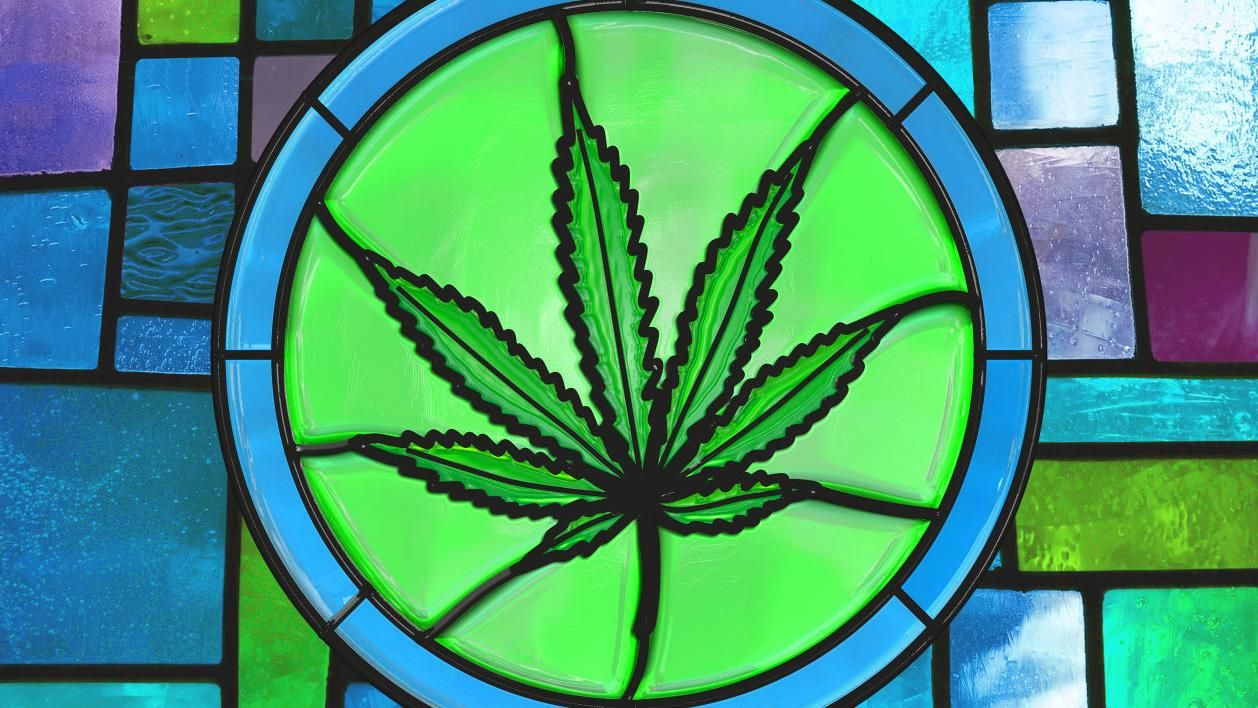
According to polls, atheists are more likely than Christians to support the legalization of cannabis
Evangelical Protestants and other Christian groups are far less susceptible to legal weed than atheists or agnostics, according to a recent survey by the Pew Research Center.
That poll, originally published last month, found that a shocking 91 percent of Americans want the federal government to reform their outdated cannabis laws. Of 5,109 respondents, 60 percent said they support combined adult use and medical legalization, 30 percent said they support medical marijuana but no recreational pot, and only 8 percent said weed should remain completely illegal.
In her initial analysis, Pew found majority support for cannabis reform in every demographic, including race, political attitudes, and age. A majority of Republicans, Asians, and seniors aged 75 or older still opposed the idea of legalizing adult use, but each of these groups still saw majority support for medical marijuana.
However, digging deeper into the data, the researchers found a demographic that still refuses to accept the healing properties of cannabis: white evangelical Protestants. Only 44 percent of these conservative Christians said they supported full legalization, while 43 percent said they would accept medicinal cannabis and 14 percent said cannabis should remain illegal.
Interestingly, about 63 percent of black Protestants and 62 percent of non-evangelical white Protestants said they supported full state legalization, more than the overall average of US adults. A smaller percentage of white Catholics (58 percent) said they were behind with full state legalization, as did an even smaller percentage of Hispanic Catholics (51 percent).
Overall, 54 percent of those with religious affiliations said they support full state legalization and 35 percent said they only support medical marijuana. In contrast, 76 percent of non-religious respondents were in favor of full legalization and 20 percent said they only supported medical pot. Atheists (88 percent) and agnostics (86 percent) agreed more strongly than those who stated that they did not believe in anything in particular (70 percent).
Even within Christian communities, Pew found that the more religious a person is, the less likely they are to have legal weed. On average, only 36 percent of those who attended church on a weekly basis were in favor of full legalization, and those who attended church less often saw that percentage rise to 69 percent. The absolute lowest support for legal weed (29 percent) was among white evangelical Protestants who attend church once a week or more, but white evangelicals who attended church services less often were far more likely (64 percent) to use adult cannabis to use.
Highly religious groups tend to describe themselves as politically conservative and atheists and agnostics almost always identify themselves as liberals. Since conservatives in general are less likely to support cannabis reform, these affiliations may help explain these findings. Non-religious political conservatives, however, are far more likely to support legal weed than their religious counterparts, suggesting that religion itself is the primary determining factor.
“The relationship between attending church services and attitudes towards the legalization of marijuana suggests that religious socialization may play a role in shaping attitudes toward the legality of the drug – much as it affects American attitudes and behavior toward alcohol and tobacco “Wrote Stephanie Kramer, research associate at Pew. “Many religions emphasize moderation and warn against intoxication. Worship leaders often remind of religious norms during services, and congregations can use social pressure to live up to them. “

Post a comment: